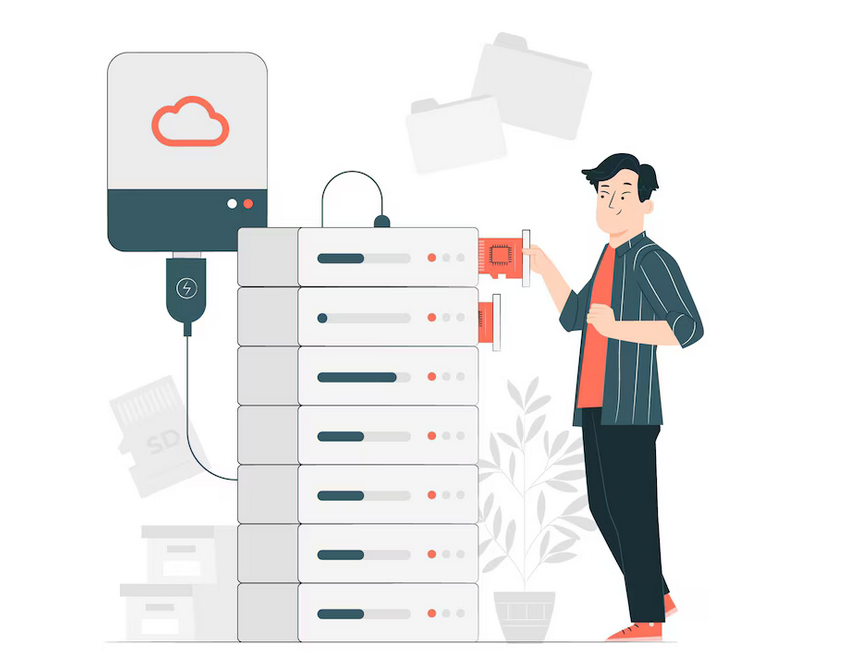In the world of web hosting, you’ll come across various options, each catering to different needs and levels of technical expertise. One of the most versatile and popular choices is the Virtual Private Server (VPS). If you’re contemplating making the switch to a VPS, it’s essential to understand what it is, how it differs from other hosting options, and whether it’s the right fit for you.
Understanding VPS: The Basics
A Virtual Private Server (VPS) is a type of web hosting that provides a virtualized server environment within a physical server. Unlike shared hosting, where multiple users share the same server resources, a VPS offers a dedicated portion of the server’s resources exclusively for you. This means you get your own operating system, storage, and bandwidth, providing more control and flexibility than shared hosting.
Here’s a simple analogy: if shared hosting is like renting a room in a crowded apartment, a VPS is like having your own apartment in a building where you share some common resources but have your own private space.
How VPS Works
A VPS operates on virtualization technology, which allows a single physical server to be divided into multiple virtual servers. Each VPS runs its own operating system and can be rebooted independently of other virtual servers on the same physical machine. This isolation ensures that your VPS remains unaffected by the activities of other users on the same hardware.
The underlying technology usually involves a hypervisor—a piece of software or hardware that manages the virtual machines. Popular hypervisors include VMware, KVM, and Hyper-V. They allocate resources like CPU, RAM, and disk space to each virtual server, ensuring optimal performance.
Advantages of VPS Hosting
- Dedicated Resources: Unlike shared hosting, where resources are shared among many users, VPS hosting guarantees a set amount of CPU, RAM, and storage dedicated to your VPS. This results in more reliable and consistent performance.
- Customization and Control: With a Virtual Private Server, you have root or administrative access to your virtual server. This means you can install and configure software, set up security protocols, and customize the server environment according to your needs.
- Scalability: Virtual Private Server hosting allows for easy scaling of resources. As your website or application grows, you can upgrade your Virtual Private Server plan to accommodate increased traffic and resource demands without significant downtime or hassle.
- Isolation: The virtualized environment of a Virtual Private Server means you are isolated from other users on the same physical server. This minimizes the risk of performance issues or security breaches caused by other users.
- Cost-Effective: Virtual Private Server hosting is more affordable than dedicated servers but offers many of the same benefits. It provides a middle ground between shared hosting and dedicated hosting, making it an excellent choice for growing businesses and high-traffic websites.
When to Consider Switching to a VPS
- Performance Issues: If your website is experiencing slow load times or performance issues on shared hosting, it might be time to upgrade to a for better speed and reliability.
- Increased Traffic: As your website or application gains more visitors, the increased traffic can strain shared hosting resources. A can handle higher traffic volumes and provide a more stable experience.
- Need for Customization: If you require specific software installations, custom configurations, or advanced security measures, a offers the flexibility and control to meet these needs.
- Growing Business: For businesses that are expanding, a provides the scalability to grow without the need for a complete overhaul of your hosting setup.
VPS vs. Shared Hosting vs. Dedicated Hosting
- Shared Hosting: This is the most basic form of hosting where multiple websites share the same server resources. It’s cost-effective but offers limited control and can suffer from performance issues due to resource sharing.
- Dedicated Hosting: With dedicated hosting, you have an entire physical server dedicated to your website. It offers maximum control and performance but is significantly more expensive than hosting.
- VPS Hosting: As a middle ground, hosting offers dedicated resources and customization at a lower cost than dedicated hosting. It’s ideal for those who need more control than shared hosting but don’t require the full resources of a dedicated server.
Conclusion
A Virtual Private Server provides a powerful and flexible hosting solution for those who need more control, better performance, and scalability than shared hosting can offer. By understanding how works and evaluating your specific needs, you can make an informed decision about whether switching to a is the right move for your website or application. With the benefits of dedicated resources, customization, and scalability, a VPS can be a valuable asset in managing and growing your online presence effectively.
